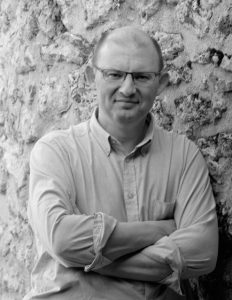A Framework for BIST for MEMS: Application to MEMS Microphones
Distinguished Speaker WebinarThe reliability of micro-electro-mechanical-systems (MEMS) microphones has increased over recent decades. An essential capability for modern electronics systems, including MEMS, is to have access to test elements of the system or subsystem. Therefore, Testability is essential right at the design stage. While MEMS devices such as accelerometers and radio frequency (RF) MEMS switches already have built-in-self-test and built-in-self-repair (BISR) solutions, research in the MEMS products, such as MEMS microphones has been lacking, until now!
On May 27, 2021 at 5pm CEST the first expert talk will be presenting innovative BIST methods applicable in-the-field to enable the extraction of specific information regarding device health. Such a diagnostic capability built into, for instance, single diaphragm capacitive MEMS microphones, can provide data to further increase the device reliability. To assess the feasibility of such BIST solutions, a machine learning based four-layer framework is developed representing a methodology for the creation BIST and BISR solutions with:
- lumped element modelling to assess the behaviour of the microphone
- failure mode simulation to characterise the behaviour of the defects affecting the frequency response of the microphone
- machine learning and global minimum finding based failure mode discrimination to identify the failure modes affecting the microphone, solely based on the frequency response of the device under test and recovery to restore the functionality of the microphone after a non-catastrophic fault
The presentation will also show experimental validation of the methodology which is an essential element of research.

Prof. Marc Desmulliez, FinstP, FIET, FRSE, SMember IEEE, the first distinguished speaker, is Deputy Director of the Research Institute of Sensors, Signals and Systems (ISSS) of the School of Engineering of Engineering & Physical Sciences (EPS) at Heriot-Watt University, Edinburgh, Scotland, UK. His research interests include advanced manufacturing technologies, more specifically the understanding and translation of natural processes to manufacturing principles, microwave sensing and MEMS. He has also a strong interest in the manufacture of medical devices and manages the £3.2M Medical Device Manufacturing Centre (MDMC) funded by the ERDF Advancing Manufacturing Challenge Fund. Marc has co-authored over 495 journal papers or conference proceedings articles and holds 9 patents and 3 Design Rights. He span out Microstencil Ltd (www.microstencil.co.uk) in 2003, a spin-out company established in Singapore which transferred its stencil manufacturing technology in 2011 to the multinational company DEK under the DEK platinum brand. He spun out his second company, MicroSense Technologies Ltd, in 2016, aiming at monitoring the quality of food products, reducing waste production and managing assets such as roads and bridges. This initiative got him the shared first £90K prize in the Converge Challenge 2016, arguably the most prestigious entrepreneurship award in Scotland.
